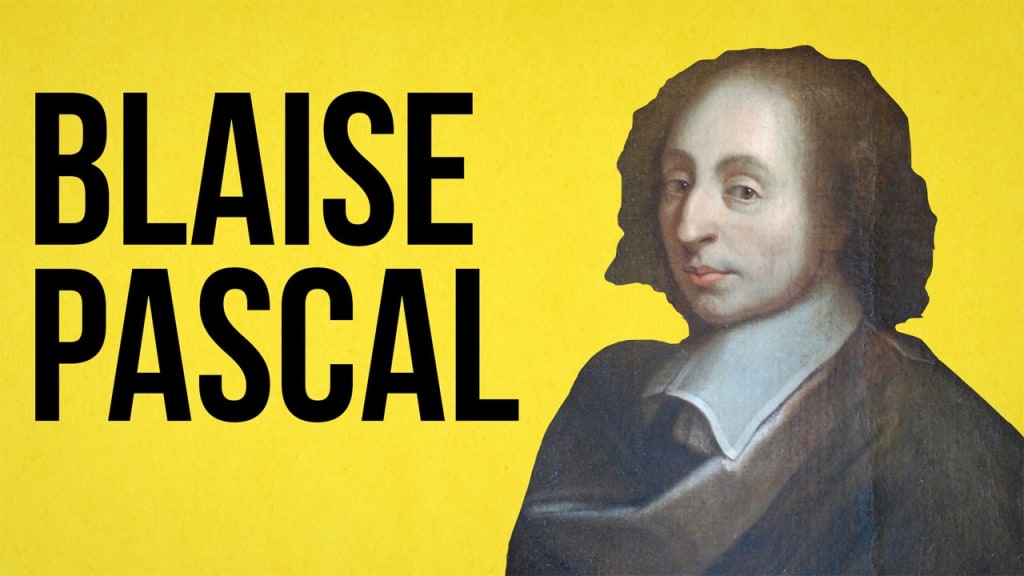Pascal's Wager, and Why God Likes Skeptics
The Philosophy of Not Believing

For many, the existence of God is unquestionable, and for others, God is an impossibility. However, for those who are undecided, philosopher Blaise Pascal presents a basis on which to decide. Pascal’s wager explains that the rewards of faith, if correct, are infinite, and that the rewards of disbelief, if correct, grant nothing. Not only is there no reward for atheists, but the price of being wrong means eternal damnation, while the price believers must pay, if wrong, is insignificant. While it may seem persuasive on first glance, the truth of Pascal’s wager is rooted in a false option, and, if given legitimacy, is the death for the rational defenses of God, by deeming them irrelevant. Between numerous critics there are a plethora of problems weaved into the foundation of Pascal’s wager. With such controversy surrounding Pascal’s pragmatic approach to the belief in God, should it be considered legitimate?
There are several problems with the logic of Pascal’s wager. One of the most infamous problems being both a difficulty for the wager, and for the Christian religion. Pascal assigns all weight of his wager to the idea that Hell could exist in a universe where an all perfect, all good God exists. This, as explained by philosopher Marilyn Adams, is impossible. Her basis for this assertion is that humans come into existence innocent, learn to form a picture of the world, construct reactive strategies to adapt to their environments during childhood, and then spend adulthood correcting the preconceived notions that were designed by each individual’s psychology. The reason that Adams takes issue with the claim that humans should be responsible for the fate of their immortal souls, is that, during adulthood, humans are still rooting out the false habits and prejudices established throughout their childhoods. Adams has come to the understanding that, in her worlds, “Human development is the product of human nature and its environment.” Furthermore, if humans form these habits during interaction with the environments that they’re brought into at birth, they are never truly free and independent agents. Adams insists that “such impaired adult human agency is no more competent to be entrusted with its (individual or collective) eternal destiny than a two-year-old agency is to be allowed choices that could result in its death or serious physical impairment.” On a cosmological scale, humans are never done maturing. If people are all introduced into differing worlds, as Adams has proved that they are, no one deserves the fate of Hell.
As pointed out by philosopher Linda Zagzebski, another one of the issues which the wager fails to address is that the logic of it could work for any religion that involves a concept of hell. If Pascal’s wager is specific to Christianity, how is it not hypocrisy to discredit the exact same argument in justification of following Islam, or Judaism? While it may be true that, at the time of its conception, Pascal’s wager wasn’t in a world quite as religiously integrated as that of today, this only proves the illegitimacy of the wager even further. If Pascal originated this concept in a time before religion moved so freely throughout the borders of the world, it ought to be understood that a different philosophy on the belief in God is needed for the modern era, lest the existence of God be seen solely as an irrational notion.
Another problem that philosopher Simon Blackburn introduces is that Pascal assumes with his wager that his audience is metaphysically ignorant. The issue with this, as Blackburn points out, is that if someone really were metaphysically ignorant, and went about their life founding their beliefs on rationality, that God seems unlikely to punish them. He presents a thought experiment in which he asks you to imagine a world where God exists, but he rewards people that don’t just blindly believe, or, as Pascal would suggest, fake belief until it feels real. God instead rewards those who aren’t so simply swayed by what is easiest to believe, but believe in what seems most likely to be true. Blackburn asserts that “…for my money, a God that punishes belief is just as likely, and a lot more reasonable, than one that punishes disbelief.” God, in Blackburn’s view, surely would not have set logic up as the damning trap that Pascal implies it to be. If humans have this seemingly rare talent amongst living beings to weigh options and analyze views through contention, why would they be punished for using it?
Despite one’s personal stance on whether or not God exists, let it be a conclusion founded on reason, rather than self-interest or utility. Pascal’s wager lacks the necessary answers to the criticisms made of it, and, therefore, it cannot be taken as legitimate. The suspension of reason and logic that Pascal is willing to tolerate for Christianity is troubling, as the goal of philosophy, before all else, is truth. There are, undoubtedly, rational answers to justify the existence of God, but Pascal discredits these more legitimate defenses of God when he suggests that they’re unnecessary. Faith is said to be blind belief, but reason can, despite what some may suggest, be a foundation of a belief in God. If it were only accepted that rational justification ought to be the basis for the belief in God, surely these justifications would soon formulate to adapt Christianity to its new environment in contemporary times.






Comments
There are no comments for this story
Be the first to respond and start the conversation.